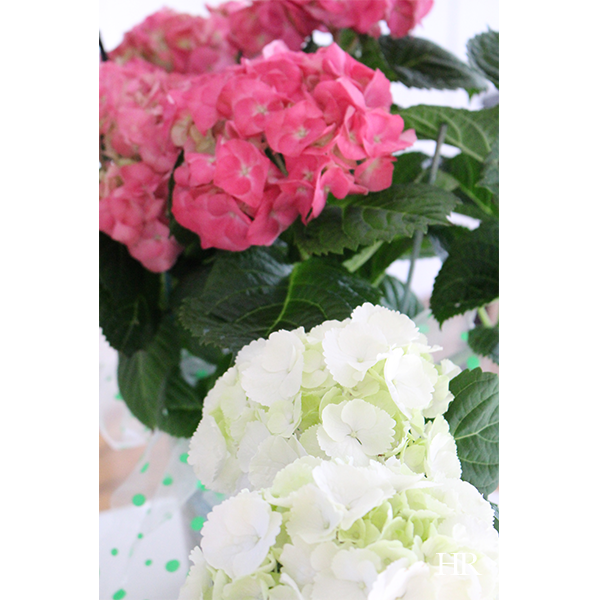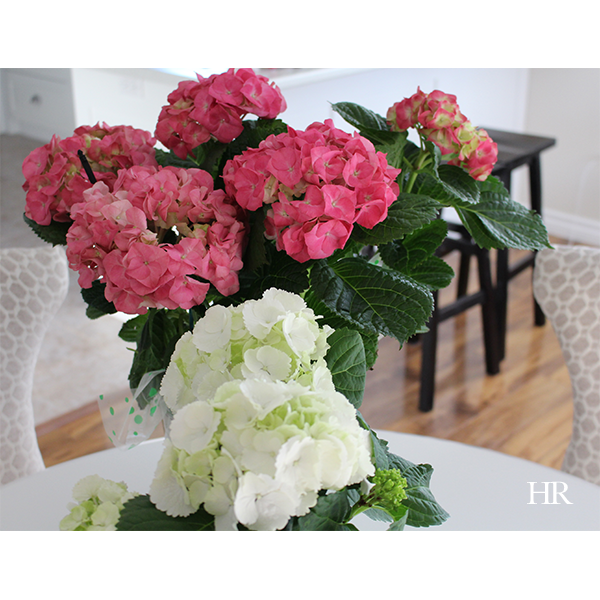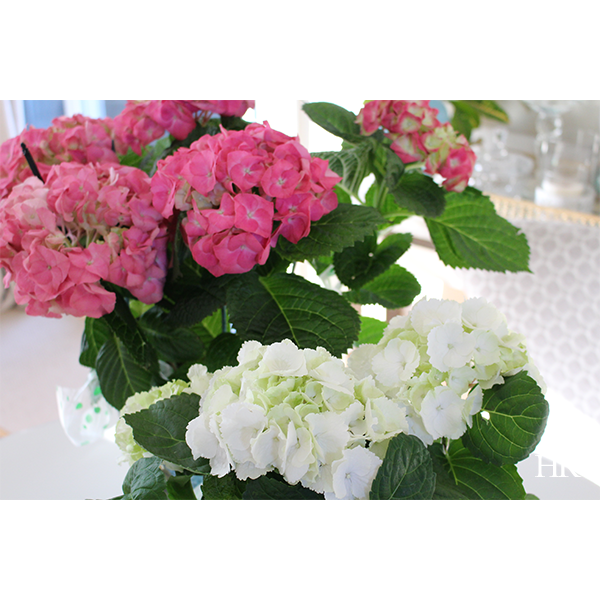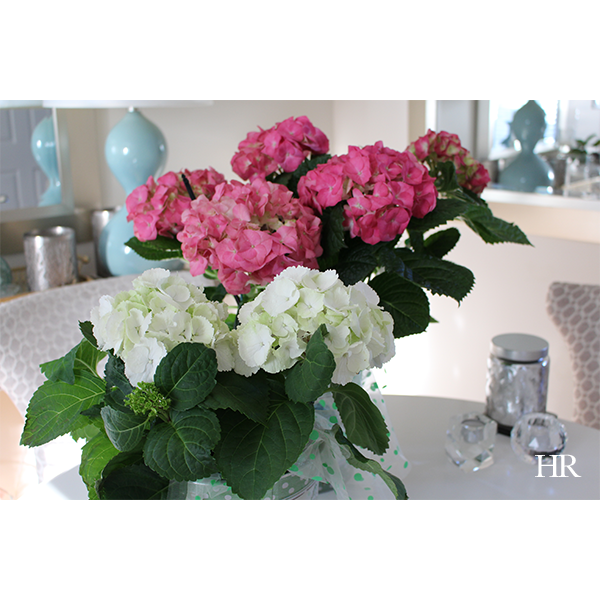Hydrangea Plants
Written by H, Posted in Gardening
Every Friday, Wes has been known to bring me a beautiful bouquet of flowers. This past weekend, we celebrated Easter with some beautiful Hydrangea blooms. We have two Hydrangea bushes in our outdoor garden (which usually bloom mid-summer). Since it’s too early for blooms outdoors, these indoor plants were a welcome addition to our kitchen, brightening up the space with their voluptuous shape and vibrant colour.
The name Hydrangea comes from the Greek “Hydro“, meaning “Water“, and “Angeion“, meaning “Vase“. As you know, Hydrangea plants love their sun and they love their water. The plants have two flower arrangements: One is the mophead flower (pictured here), and the other is the lacecap flower.
The Hydrangea plant was originally discovered in the 1730s by an English-American botanist, John Bartram. Bartram became King George III’s botanist and is widely known as the “Father of American Botany”.
While white is the most common colour of Hydrangea, in some species the plant can also be pink, purple, blue, and even green. Regardless of the hue, Hydrangea blossoms remain some of my favourite. Not only is the flower itself beautiful, but these plants have healthy green leaves, which make for a lovely contrast.






![False friends or counterfeit kindness; whatever you want to call it, the world is filled with people who will say one thing to your face and then another behind your back; people who will woo you in order to get something from you.
It’s sad, but it’s true.
The Bible provides us with examples from Joab to Judas, and yet, we’re surprised when we find ourselves deceived and hurt by someone else.
So what are some of the hallmarks of a true friend?
You can read more about this on hopereflected.com [Link in profile]
.
.
.
#friends #friendship #kindness #counterfeitkindness #hurt #proverbs #truefriends #hopereflected #blog #blogpost](https://www.hopereflected.com/wp-content/plugins/instagram-feed/img/placeholder.png)